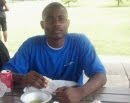In 2004, the situation in Iraq was deteriorating and the Coalition had two major cities erupt in flames. Insurgents led by former Iraqi soldiers and foreign terrorist had descended on the cities of Falluja and Ramadi. Urban combat was a particularly bad scenario for the Coalition as they lost the ability to use their technological advantage in bombs and other heavy weaponry due to the high potential for civilian casualties. Falluja in the November of 2004 was a good example of how deadly and vicious combat can be in the close quarters of urban warfare. Bing West paints the picture graphically in his account of the Battle of Falluja in one chapter of his book titled "The House From Hell".
A small group of Marines were in the heat of the infamous Battle of Falluja. The combat conditions had led the Marines assaulting the city to check every single house for insurgents. This was a long tense process. Finally, the Marines who had been fighting for days in the city came up on a small average Iraqi house. Because it was too small for a large group of insurgents, the Marines decided that they could assault it on foot. They had killed an insurgent in the front of the building when they came up on the main room of the house. There they walked into a well orchestrated trap.
The insurgent were standing on a catwalk overlooking the foyer so that they could shoot anyone who entered before they could a shot off. This is what happened to Lance Corporal Cory Carlisle. As soon as he entered the foyer, AK-47 rounds began to shatter both of his legs, leaving him screaming in pain on the floor. The insurgent choose not to finish him off because they understood that Americans do not leave anyone behind and that the Marines would have to come to try and save their comrade. They were cruel and methodical.
Hearing their friend bleeding to death on the floor, the Marines began to make several attempts to rescue him while constantly under fire from the strategically placed insurgents on the foyer. West writes "Bullets were ricocheting off the walls and skipping across the floor"(297) . In the end, when they evacuated all of the wounded that accumulated during the rescue, they decided it was safer to blow up the house with a satchel charge. After the house was demolished, two insurgents lay in the rubble alive. One tossed a final grenade that missed, and was eliminated by two-hundred rounds of the Marines ammunition. The Marines were tired and covered in blood, but it was over.
The picture that West paints shows me that the insurgents were and are not as stupid as people usually give them credit for. The enemy is very clever and ruthless enough to execute deadly operations against the coalition despite their lack of more modern technology. As much as I hate to admit it, they are good soldiers and I would hate too see what they could do with an advanced war machine. I must also acknowledge the extraordinary courage the Marines showed, fighting continuously until they could save their fellow Marine. We usually underestimate the valor of our own forces because of their technological advantage, but the Marines proved that even if all they had were sticks and stone they would take the fight to the enemy. Morale wise, I couldn't see either side loosing the War.
Saturday, March 20, 2010
Insurgent "House From Hell"
Posted by Samuel Reddick at 12:31 PM
Subscribe to:
Post Comments (Atom)


0 comments:
Post a Comment